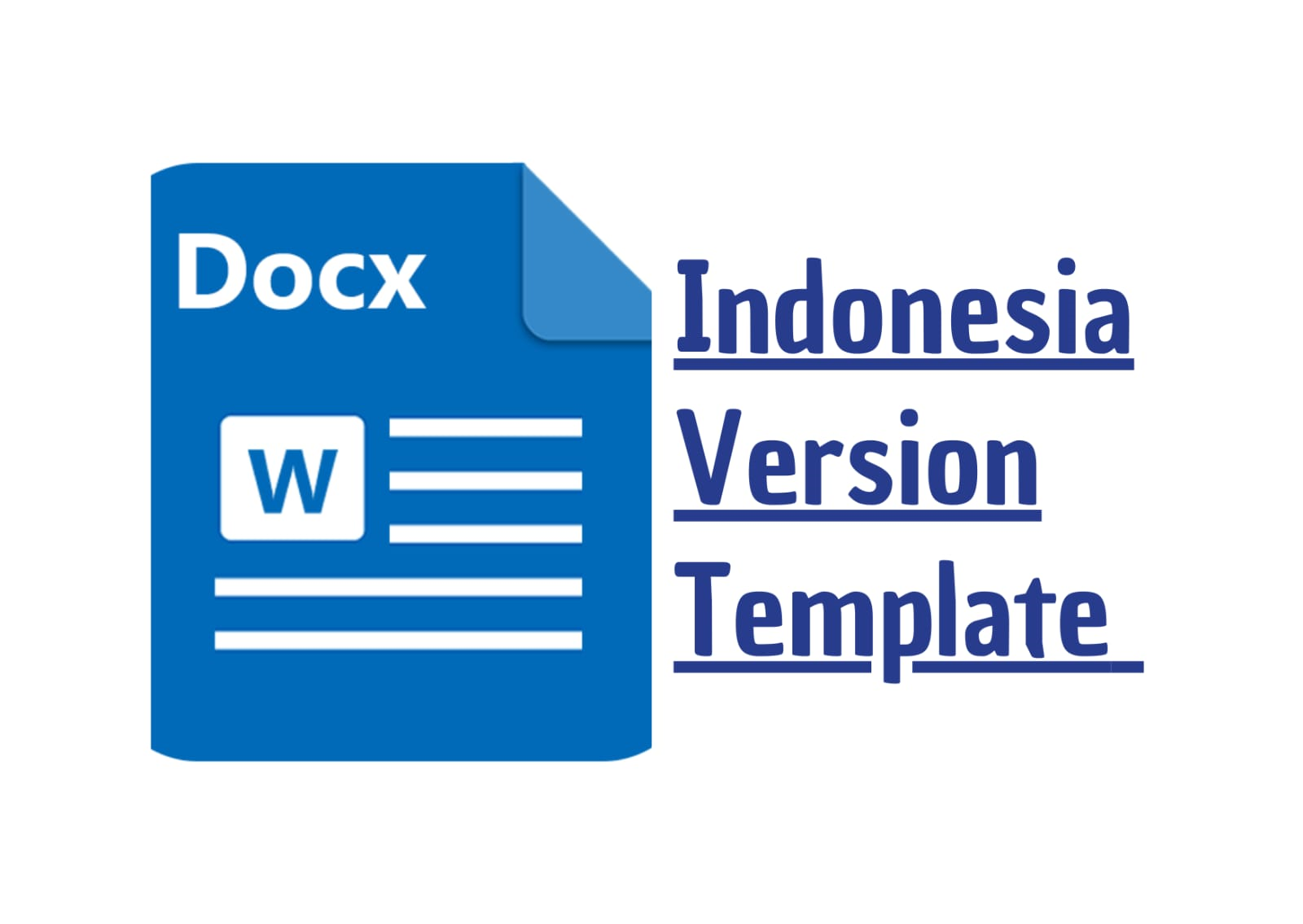iB Dhuha Saving Product Analysis with Wadiah Contract at Bank Riau Kepri Bengkalis Branch
DOI:
https://doi.org/10.56799/jim.v2i5.1491Keywords:
Product, iB Hajj Savings, Dhuha, Wadiah ContractAbstract
The goal of this study is to figure out how to make the first deposit of Hajj iB savings. Dhuha with the system for implementing a wadiah contract on iB hajj savings and a wadiah contract. Dhuha at the Bengkalis Branch of Bank Riau Kepri. The qualitative research method was used to examine the Hajj iB savings product. Dhuha at the Bengkalis Branch of Bank Riau Kepri. This kind of research is field research that uses methods like interviews and documentation to collect data; Customers of the iB Dhuha hajj savings product at the Bank Riau Kepri Bengkalis Branch served as the study's subjects. Initial deposit funds for potential iB Dhuha savings customers at the Bank Riau Kepri Bengkalis Branch were the subject of this study. The Bank Riau Kepri Bengkalis Branch is the population, the Bank Riau Kepri Bengkalis Branch's customer service is the sample, and a structured interview guideline is the measurement scale used in this study. Descriptive qualitative analysis was used in data analysis. The study's conclusions were as follows: in the initial deposit made by customers of iB Hajj savings. Dhuha customers make an initial deposit of at least Rp at the Bank Riau Kepri Bengkalis Branch. 50,000,000, and the customer is free to make additional deposits of a minimum of Rp depending on their ability. up to Rp. 20,000, - 25,000,000.
Downloads
References
Akbar, N. (2019). Mudharabah, Tinjauan Terhadap Strategi Pemasaran Pada Tabungan Haji Dalam Akad (Studi Kasus Bank Syariah Mandiri Kcp Sudirman, Bogor). Amwaluna: Jurnal Ekonomi Dan Keuangan Syariah, 3(1), 70–90.
Akhter, M. U. (2015). Principles of Islamic Finance: Prohibition of Riba, Gharar and Maysir. Munich Personal RePEc Archive, 67711, 1–8. https://doi.org/10.13140/RG.2.2.36029.20969
Akram Laldin, M. (2008). Islamic financial system: The Malaysian experience and the way forward. Humanomics, 24(3), 217–238. https://doi.org/10.1108/08288660810899377
Al-Smadi, M. O. (2012). Factors Affecting Adoption of Electronic Banking : An Analysis of the Perspectives of Banks ’ Customers. International Journal of Business and Social Science, 67(4), 294–309.
Aldoseri, M., & Worthington, A. C. (2016). Risk Management in Islamic Banking: An Emerging Market Imperative. Risk Management in Emerging Markets, 229–252. https://doi.org/10.1108/978-1-78635-452-520161020
Ariff, M. (1988). Islamic Banking. Asian‐Pacific Economic Literature, 2(2), 48–64. https://doi.org/10.1111/j.1467-8411.1988.tb00200.x
Desminar. (2019). Akad Wadiah Dalam Perspektif Fiqih Muamalah Desminar. Menara Ilmu, XIII(3), 25–35.
Dewi, S. A. K. (2019). Peran Lembaga Penjamin Simpanan ( LPS ) Pada Bank Gagal Sebagai Upaya Perlindungan Hukum Terhadap Nasabah. Yudisia : Jurnal Pemikiran Hukum Dan Hukum Islam, 10(26), 101–120.
F., M. A. B. (2020). Penanganan Bank Perkreditan Rakyat Yang Dinyatakan Gagal. Jurist-Diction, 3(2), 401–424. https://doi.org/10.20473/jd.v3i2.18195
Febriliana, I. R. A., & Riza, D. (2021). Konsep Dan Implementasi Akad Ijarah Dan Akad Wadiah Pada Perbankan Syariah Di Indonesia. Jurnal Keadaban, 3(2), 46–53.
Fernandes, D., Baga, L. M., & Riflin, A. (2020). The Strategy Of Pt Bank Riau Kepri Capem Flamboyan In Preparation Of Oil Palm Replanting. Jurnal Manajemen Dan Agribisnis, 17(2), 207–216.
Figana, R. A., Marnis, & Maulida, Y. (2022). The Effect Of Conversion Of Conventional Bank Riau Kepri To Sharia Bank Riau Kepri On Assets And Customer Satisfaction With Customer Perceptions As Intervening Variables. Jurnal Manajemen Dayasaing, 24(1), 52–62.
Firdaus, M. I., Pradhana, T. A., & Nasution, S. (2020). The Concept of Money According to the Thought of Ibn Taymiyah and Imam Ghazali and its Impelemation in the Economic Field. Al-Iktisab: Journal of Islamic Economic Law, 4(2).
Hariyanti, P., & Utari, R. (2013). Pengaruh Aktivitas Customer Service dan Kepuasan Nasabah terhadap Loyalitas Nasabah Bank Riau Kepri Capem Panam Pekanbaru. Jurnal Komunikasi, 8.
Harkati, R., Alhabshi, S. M., & Kassim, S. (2020). Does capital adequacy ratio influence risk-taking behaviour of conventional and Islamic banks differently? Empirical evidence from dual banking system of Malaysia. Journal of Islamic Accounting and Business Research, 11(9), 1989–2015. https://doi.org/10.1108/JIABR-11-2019-0212
Hasan, Z. (2019). Market Share Islamic Banking In Indonesia. IQTISHADUNA: Jurnal Ilmiah Ekonomi Kita, 8(1), 124–137. https://doi.org/10.46367/iqtishaduna.v8i1.157
Hasan, Z. (2021). Analysis of Factors Affecting Community Interest in Bengkalis Regency Riau Province Indonesia in Using Sharia Banking. The European Journal of Islamic Finance, 19, 35–44. https://doi.org/10.13135/2421-2172/6108
Hasan, Z. (2022). Prospect of Islamic Electronic Money in Indonesia : Case Study on the LinkAja Application. Jurnal Ekonomi Syariah Indonesia, XII(1), 1–13.
HASAN, Z. (2022). The Effect of Human Development Index and Net Participation Rate on the Percentage of Poor Population: A Case Study in Riau Province, Indonesia. International Journal of Islamic Economics and Finance Studies, 24–40. https://doi.org/10.54427/ijisef.964861
Hasan, Z., Rosiana, M., & Putri, N. (2021). Islamic Banking in Indonesia and Globalization in Era 4 . 0. Management Research Journal, 10(2), 103–111.
Hasan, Z., & Syahira, N. (2022). Opportunities and Challenges of Islamic Banks during the Covid-19 Pandemic. Jurnal Multidisiplin West Science, 01(02), 57–64.
Huda, Q., & Haeba, I. D. (2021). Hajj, Istitā’ah, and Waiting List Regulation in Indonesia. AL-‘ADALAH, 18(2), 193–212.
Janrosl, V. S. E. (2019). Analisis Good Corporate Governance Dan Ukuran Perusahaan Terhadap Tax Avoidance Pada PT . Bank Riau Kepri. Jurnal Pundi, 03(01), 71–78. https://doi.org/10.31575/jp.v3i1.107
Kamilah, H. M., & Nada, E. K. (2021). Manajemen Pengelolaan Tabungan Haji Pada Masa Pandemi Di Cu Bbm. Haramain Jurnal Manajemen Bisnis, 1(3), 130–137.
Lutfi, M. (2020). Penerapan Akad Wadiah Di Perbankan Syariah. Madani Syariah, 3(2), 132–146.
Mutmainah, L., Nurwahidin, & Huda, N. (2021). Waqf Blockchain in Indonesia: at AGlance. AL-AWQAFJurnal Wakaf Dan Ekonomi Islam, 14(1), 31–49.
Nastiti, N. D., & Kasri, R. A. (2019). The role of banking regulation in the development of Islamic banking financing in Indonesia. International Journal of Islamic and Middle Eastern Finance and Management, 12(5), 643–662. https://doi.org/10.1108/IMEFM-10-2018-0365
Nurhasibah, A., & Sukmana, R. (2019). Peran Perbankan Syariah dalam Mempengaruhi Pertumbuhan Ekonomi Indonesia Tahun 1993-2016. Jurnal Ekonomi Syariah Teori Dan Terapan, 6(8), 1564–1577.
Nurwahyudi, N., & Rimawan, E. (2021). Analysis of customer satisfaction in freight forwarder industry using servqual, ipa and fmea methods. Pomorstvo, 35(1), 109–117. https://doi.org/10.31217/p.35.1.12
Orhan, Z. H. (2018). Business model of Islamic banks in Turkey. Journal of Islamic Accounting and Business Research, 9(3), 290–307. https://doi.org/10.1108/JIABR-10-2014-0037
Priyadi, U., & Hidayat, T. (2016). Analisis determinan faktor tabungan. AJIE - Asian Journal of Innovation and Entrepreneurship, 01(03).
Rachman, A., & Syariah, M. (2022). Strategi Pemasaran Syariah Dalam Meningkatkan Jumlah Nasabah Tabungan Haji Dan Umrah Ib Pada Btn Kcps Tangerang Abdul Rachman 1 , Arie Haura2, Dwi Puspita Sari3, Mayang Ayu Faluthamia 4. Madani Syariah, 5(1), 43–58.
Rakhmanita, A. (2018). Faktor-Faktor Yang Mempengaruhi Keputusan Nasabah Pembiayaan Haji Memilih Pegadaian Syariah. Widya Cipta Jurnal Sekretaris Dan Manajemen, 2(2), 233–238.
Rodiyah, L., & Hadi, A. (2008). Implementasi Akad Wadiah Dalam Produk Tabungan Di Bank Syariah Mandiri Dan Tinjauannya Menurut Hukum Ekonomi Syariah. Jurnal Justisia Ekonomika, 4(1).
Saputra, R. Ben, & Alwie, A. P. (2015). Nasabah Terhadap Loyalitas Nasabah Pada Pt . Bank Riau Kepri Cabang Siak. Jurnal Tepak Manajemen Bisnis, VII(2), 285–294.
Schoon Natalie. (2016). Modern Islamic Banking, Products and Processes in Practice. In www.wiley.com. (Ed.), ثبثبثب: Vol. ث ققثق (First, Issue ثق ثقثقثق). 2016 John Wiley & Sons Ltd.
Simatupang, H. B., Islam, U., & Utara, S. (2019). Peranan perbankan dalam meningkatkan perekonomian indonesia. Jurnal Riset Akuntansi Multiparadigma (JRAM), 6(2), 136–146.
Solihin. (2020). Manajemen Permodalan Bmt (Baitul Maalwat Tamwil) Di Masa Pandemi Covid-19. Jurnal Lentera Kajian Keagamaan, Keilmuan Dan Teknologi, 19(1), 131–142.
Suharto, U. (2018). Riba and interest in Islamic finance: semantic and terminological ıssue. In International Journal of Islamic and Middle Eastern Finance and Management (Vol. 11, Issue 1, pp. 131–138). https://doi.org/10.1108/IMEFM-08-2016-0109
Tho’in, M., & Prastiwi, I. E. (2016). Analisis Dana Talangan Haji Berdasarkan Fatwa No.29 / Dsn-Mui / Vi / 2002 (Studi Kasus Pada Bprs Dana Mulia Surakarta). Jurnal Ilmiah Ekonomi Islam, 02(29), 21–28.
Tongkong, S. (2012). Key factors influencing capital structure decision and its speed of adjustment of Thai listed real estate companies. Procedia - Social and Behavioral Sciences, 40, 716–720. https://doi.org/10.1016/j.sbspro.2012.03.254
Usman, R. (2017). Karakteristik Uang Elektronik Dalam Sistem Pembayaran. Yuridika, 32(1), 134. https://doi.org/10.20473/ydk.v32i1.4431




















